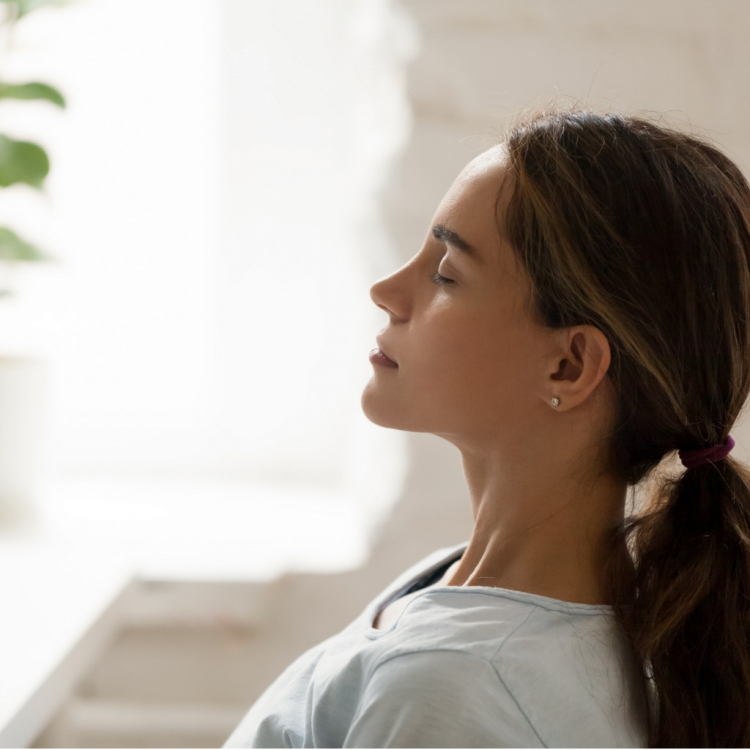Wellness hub created on the Airmic site

A renewed focus on mental health means Airmic will keep its website updated with wellness content in association with partners, including Marsh and QBE.
Wellness is already an integral part of Airmic’s annual conference events. The days usually start with a Yoga session offering delegates the chance to relax and loosen up before the day ahead.
Coronavirus has put new emphasis wellness issues, with many more people struggling with mental health amid societal lockdowns, remote working and continued social distancing guidance, in the UK and across the globe.
With these issues in mind for the Airmic membership community, Susi Ozkurt, Airmic’s events manager, has added a wellness section to Airmic’s website, with a commitment to keep this new hub updated with content to keep wellness prominent and front of mind.
“The aim is to provide a broad range of wellness content for our members,” Ozkurt tells Airmic News. “It’s another layer of content, updated regularly, in association with our partners, and something that I think should be part of our member offering.”
Jessica Swallow, founder of Jessie Eloise Yoga, will be familiar to many members for her yoga sessions at the Airmic Conference, sponsored by insurer QBE, most recently at last year’s Airmic Fest virtual event. Click here for one of her yoga sessions, made available on the Wellness hub.
“Our mental and physical wellbeing have never been more important,” says Swallow. “Taking just a short time out of your day in this way has a profound impact on your mental state and the functioning of the organs in your body, leaving you feeling more energised and frankly, happier and healthier - this then will have a ripple effect on the health of all those around you.
“Immersed in work from nine to five, and then busy preparing dinner, looking after a home, kids, parents – life! – people often find there is no time to check in with themselves: ‘How am I today? Have I moved my body? Have I been breathing nice full breaths? What does my mind need right now? What is my body telling me?' My sessions answer these questions, allowing busy people to connect to their breath, move their body and calm their minds,” she adds.
Several partnering firms, including Lloyd’s, Lockton, Marsh and Willis Towers Watson, have already provided content via the hub. Among them, Marsh is delivering mindfulness sessions each month.
“I view mindfulness as a gym for your mind,” says Lorna Feeney, head of mental health risk, Marsh Risk Consultancy. “Marsh is excited to be partnering with Airmic to deliver short but extremely useful mindfulness sessions every month. Mindfulness is a tool, its free to do, anytime, anywhere, (apart from driving) and everyone should learn how to use this skill daily. I am pleased to say that Mindfulness is now taught in schools, so why not in the work place.”
Feeney emphasises the benefits available to all from engaging in some form of daily mindfulness or relaxation techniques, which she thinks should be learnt by all as a preventative tool against mental health illnesses.
“Mindfulness is often prescribed as a treatment for mental ill health, which is being used as a reactive measure. I can confirm, it’s actually hard to learn when you have a mental health illness,” says Feeney.
Learning it now will result in reduced stress levels, she explains, Mindfulness can help avoid feelings of anxiousness, worrying, agitation, irritability and argumentativeness, restless sleeping, lower levels of energy, overthinking, lack of concentration, feeling flat, uninspired and even physical conditions such as skin rashes.
“Mindfulness and other forms of meditation will induce a state of relaxation therefore it will help lower blood pressure, heart rates, anxiety levels, increases awareness, your attention, focus and concentration,” says Feeney.
“It can help increase your immunity, higher brain functioning, meaning be more creative, experiencing calm and internal still. Gaining all of these benefits can be as simple as closing your eyes, being silent, connecting your mind and body for a few minutes a day. It is so easy, anyone can do it,” she adds.
During the tough Covid-dominated period of 2020 and 2021, wellness is more vital than ever, with many more people feeling the strain or suffering in isolation. Feeney focuses on helping each other, to ease this burden.
“Early intervention is crucial and we should all be helping one another in any way we can,” she says. “Just asking someone how they are and listening to them can have a massive impact, learning mindfulness and CBT, think of them as tools instead of treatments. There is so much we can do and business can do to decrease the risk of mental ill health.”
Now is an ideal time to take up simple daily wellness initiatives from the comfort of our living rooms. Swallow extols the benefits of yoga as one healthy routine to help people get through the tough times of the pandemic.
“The past year has taught us that things can change in a heartbeat and we do not know what is around the corner, but the one thing we do have is our bodies and the 'moment'. This might sound cliche, but it is true. Yoga helps us to practise mindfulness, and be fully present for each moment of our life,” she says.
“Not only that, yoga can have a profound benefit to our mental wellbeing, as well as our physical wellbeing, as we breathe fully, move our bodies and calm our minds,” Swallow continues. “If we don't have these, we are not living life to its fullest. The past year, it has been hard for us to see all the beautiful things life has to offer and to feel optimistic, but yoga has the power to heal these wounds. For me personally, I don't know how I would have got through the pandemic without it!”
View the wellness hub here.
